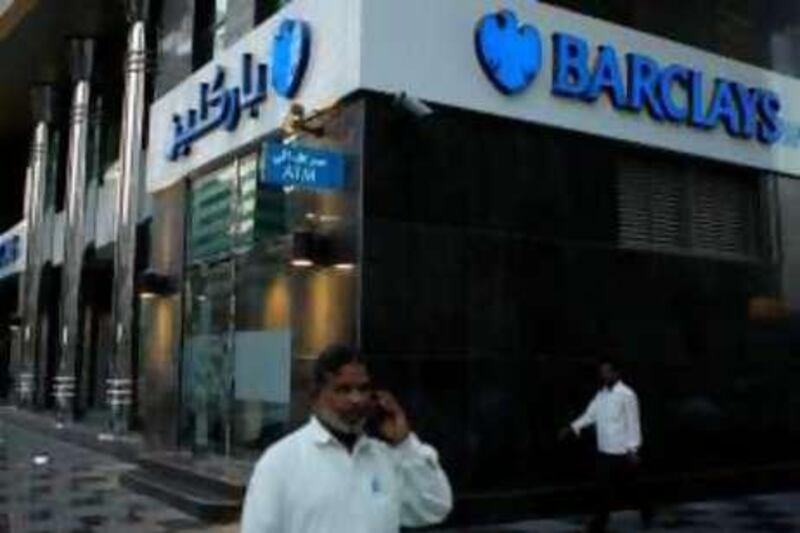The terms of the deal by the British bank Barclays to raise more than £5 billion (Dh27.09bn) with investors in the Middle East will not be renegotiated, according to an industry source. Barclays has faced a backlash among shareholders who are unhappy that investors in Qatar and Abu Dhabi have been offered attractive terms to provide the bank with capital, prompting speculation the terms of the fundraising could be renegotiated. However, the source said that would not happen.
Shareholders in Barclays are due to vote on Nov 24 on plans to raise cash from the sale of complex capital instruments to Gulf investors. The proceeds make up most of a £7bn fundraising announced last month. Much of the capital is being raised from the sale of reserve capital instruments (RCIs) that will pay annual interest of 14 per cent until June 2019. Gulf investors, including Sheikh Mansour bin Zayed, Minister of Presidential Affairs, are preparing to buy into Barclays Bank, Britain's second-largest bank.
Sheikh Mansour is paying up to £3.5bn in a personal capacity for a 16.3 per cent stake and will become the bank's single largest shareholder. The other investors are the Qatar Investment Authority and Challenger, the Qatar royal family's investment arm. The deal could leave Gulf investors with a 32 per cent stake in the bank if they exercise all their options. On Thursday, a top advisory service suggested investors abstain from the Nov 24 vote, citing the high cost and dilutive nature of the plan.
RiskMetrics Group, a corporate governance adviser, said investors should abstain due to the large discount at which shares were being offered, the high cost and the dilutive nature of the capital-raising compared with funding offered by the UK government. It said, however, that "it would not be in shareholders' best interests to reject this proposal outright". US-based RiskMetrics has about 1,600 clients globally, including pension funds, investment managers and hedge funds.
Some Barclays investors are unhappy that the bank will pay more under the terms of its fundraising than if it had taken government funds. The bank will have to pay slightly more interest, probably over a longer period, than if it had taken funds under the state rescue plan, and is not giving other shareholders the chance to participate on the same terms. Its shares fell 6.2 per cent to 157.7 pence on Thursday, one of the biggest losers in a weak European bank index.
Top investors Legal and General Investment Management and Aviva Investors may vote against the plan, the Financial Times has reported. Other investors have expressed concerns about the plan, but the price could be worth paying to keep the bank's commercial freedom and not leave the UK government with a stake. Lawrence Creatura, the portfolio manager at Clover Capital Management, said tough market conditions meant Barclays had to pay up to raise funds.
Clover is a top-20 investor in the bank with a 1.5 per cent stake, according to Thomson Reuters data. "Capital is scarce, and for that reason pricing is aggressive. It is rational to offer attractive pricing to raise capital in this environment," Mr Creatura said. Barclays was not acting irrationally or violating fiduciary duty, he added. Barclays executives are meeting investors to build support for the capital raising, and are expected to meet the Association of British Insurers to discuss the issue.
British banks were told by regulators last month to hold more capital to prepare for an economic downturn. * Reuters





